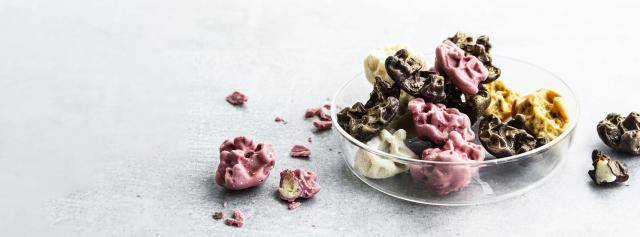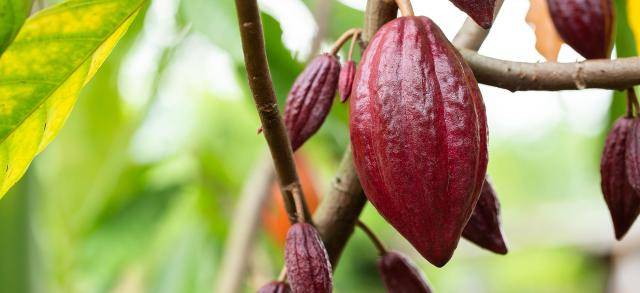Ruby chocolate is a new and unique chocolate that is offered with all types of claims and specific legislation.
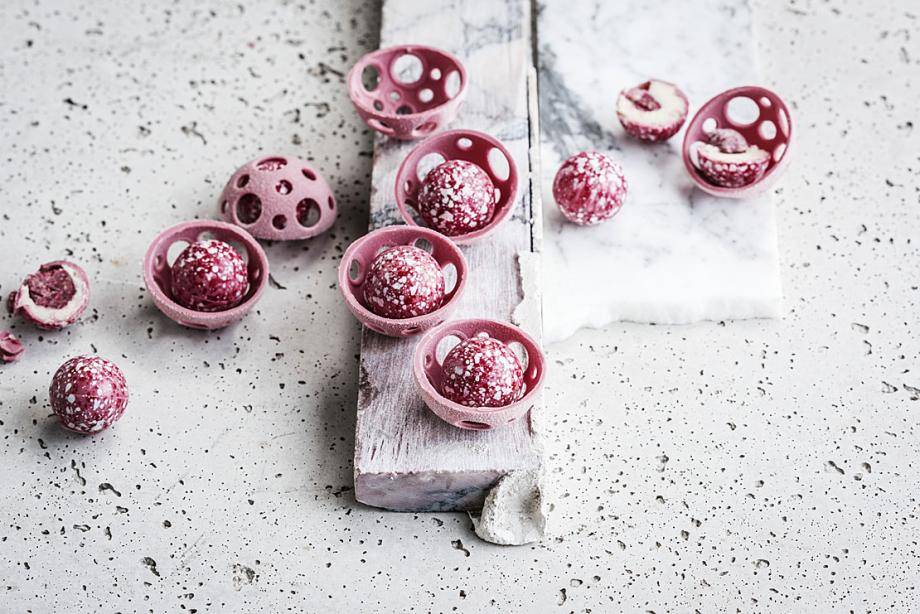
Ruby chocolate pralines - bonbons
1. What is the legal denomination of ruby?
This will fully depend on the region or country where the ruby chocolate will be put on the market. We have a clear view of the legal denominations for the different countries, dependent on the recipe. The legal denomination needs to be mentioned back of the pack. Front of the pack, the name ‘ruby chocolate’ can be used.
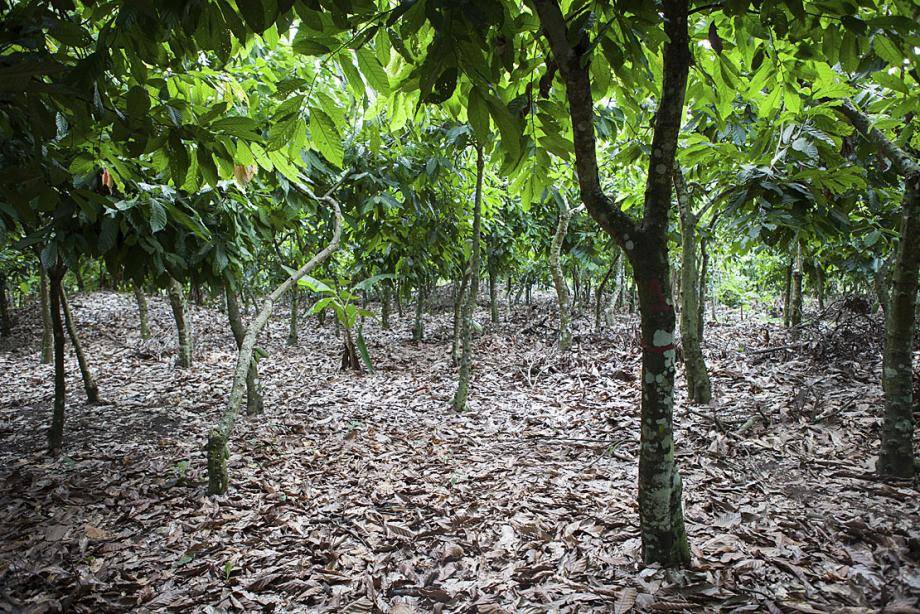
2. Is ruby chocolate natural?
Ruby chocolate can not be claimed as natural: Chocolate does not grow by itself; it’s the processing that unlocks the color and flavor that are naturally present in the ruby cocoa bean. Like any chocolate production, the production of ruby chocolate can't be called 'natural'. Simply because it’s not happening spontaneously in nature. However, to create ruby chocolate with its characteristic flavor and color we bring ingredients from natural origin together. This also means Ruby Chocolate is not genetically modified, non-gmo.
3. Is ruby chocolate vegan/ vegetarian?
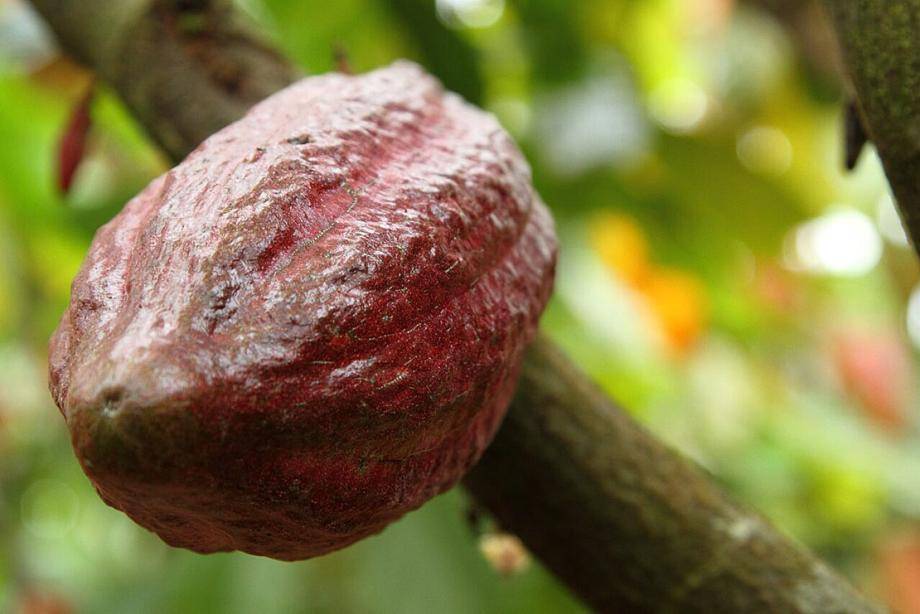
4. Is ruby chocolate sustainable?
Ruby chocolate like all chocolates of Barry Callebaut will be fully sustainable by 2025. Today we already produce ruby chocolate with sustainable cocoa beans only, complying with our own cocoa sustainability program, Cocoa Horizons. Of course, we are not waiting till 2025 to make ruby chocolate fully sustainable, it is already available today.
Certifications applying for ruby chocolate (and ruby beans) are based on the mass balance principle. Both UTZ mass balance and RFA mass balance are possible on request. Fair Trade is not available nor is organic. Kosher and halal are possible on demand.
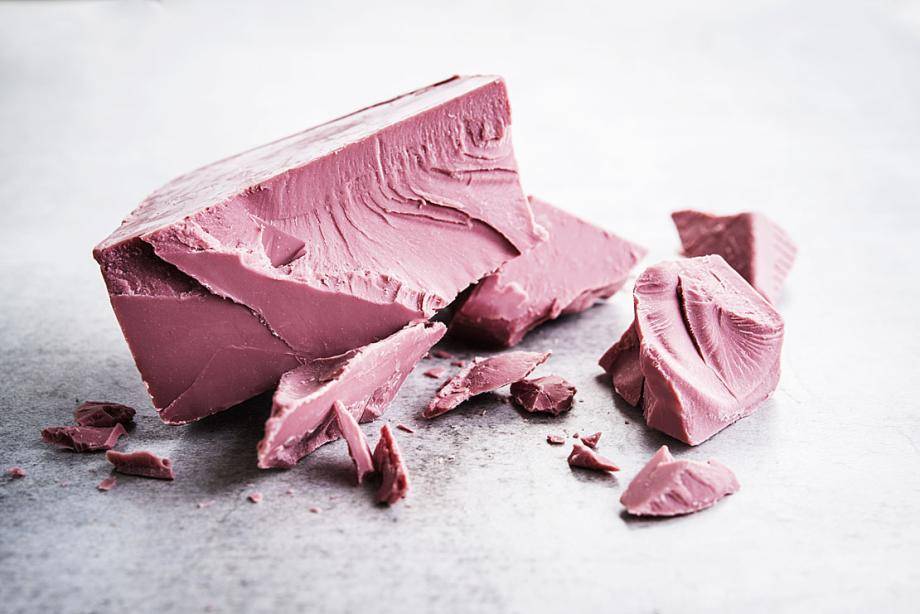
Ruby chocolate
5. Is ruby chocolate without any additives?
Ruby chocolate is NOT without additives. First of all soy or sunflower lecithin is used in ruby chocolate just like in other chocolates as well. Citric acid is used to unlock the flavor and color of the ruby bean. This means citric acid is also present in the ruby chocolate and needs to be declared. As a result, ruby chocolate cannot be claimed to be without additives, which is the case for most other chocolates too.
6. Is ruby chocolate kosher and halal certified?
We can provide ruby chocolate with kosher and/or halal certification on demand. Get in touch with us to discuss the requirements for your next ruby product development.
7. Provenance claims
Ruby chocolate can be claimed Belgian upon request.
We also offer a Swiss-made ruby chocolate for Swiss chocolate lovers. This chocolate is called Ruby Azalina.
Get in touch
We are ready to answer all your questions and help you make your new ruby product launch a success. Let us know how we can support you and we will get back to you soon.


